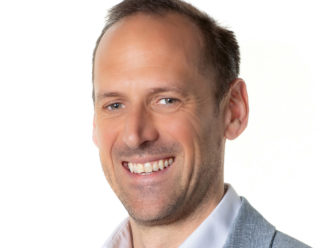By Hugo Bain
Ukraine and pro-Russia rebel forces agreed a ceasefire on 5 September, the first step towards ending a five-month conflict in eastern Ukraine. But the United States and Europe have imposed fresh sanctions on Moscow in a bid to put further pressure on President Vladimir Putin. How is the country dealing with the effect of Western sanctions and how do ordinary Russians view Putin’s moves?
It was the most united Russia I’ve ever seen in my 15 years as an emerging market investment professional. Despite the bleak headlines in the Western press, I got the sense ordinary Russian people are standing behind President Vladimir Putin, genuinely concerned that the West is threatening what they see as their country’s legitimate security interest. Putin’s approval ratings still fly high at 84%, near a record peak hit in early August. With one of the lowest unemployment rates in history and improved standards of living, it seems that political issues matter more to Russian people right now than economics.
Putin’s endgame
In meeting with officials close to the government’s strategy, we were told that Russia, or rather Putin, has no pre-determined goal in relation to Ukraine. He is making quick and opportunistic decisions; the decision to annex Crimea, for instance, was apparently shaped within two to three days. Another important thing to note is that Putin is clearly deciding these things on his own, and takes guidance from only a very small circle of advisers. This makes it difficult for us to make long-term forecasts. I got the impression however that Putin wants a federal Ukraine, with autonomy for the eastern part of the country and a veto on all strategic decisions affecting it – such as a NATO membership. But for all his autocratic tendencies, I did learn from meeting key officials that Putin does care about opinion polls, mindful that former President Boris Yeltsin’s approval rating plunged to 2% from 67% between 1997 and 1998 before his resignation. The current high approval rating means Putin is free to pursue his political and strategic aims right now, but this could change quite quickly.
Flat growth, sticky inflation
There is no doubt the country’s economy is suffering. Gross domestic product had contracted in annual terms in June and July as capital outflows surged and investment slumped. There is a concern about a recession but we think economic growth should be flat in 2014. Inflation continues to be a problem – the country is likely to overshoot its inflation target of 5% by a wide margin this year. Ironically, I found that it was more Russia’s own retaliatory measures, rather than Western sanctions, that have affected the economy the most: during the trip, I heard that Moscow’s ban on Western food imports in August has led to price increases of up to 20% for chicken in rural areas. The impact of food import bans is expected to add 1.5 percentage points to inflation this year. It seemed to me an immediate effect from Western sanctions was limited as they have not directly targeted the country’s dominant energy exports. I was rather struck, however, by the lack of thorough contingency planning among economic officials. Those I met largely played down the impact of Western sanctions, and they appear to give no consideration to the risk that sanctions may drain liquidity in the financial market, leading to a bankruptcy of one of the weaker banks, which could pose systemic threats.
Hugo Bain is a senior investment manager at Pictet Asset Management




Comments